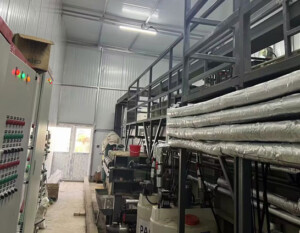废水资源化利用技术与设备是环境保护领域的重要组成部分。它们通过将废水转化为可重复使用的资源来帮助缓解水资源短缺问题并减少环境污染。以下是废水资源化利用技术及设备的详细介绍:
1. 废水资源化利用技术
1. 物理处理技术
沉淀:利用重力沉淀废水中的悬浮物以去除杂质。
过滤:利用滤网、滤料等截留废水中的固体颗粒,实现精细过滤。
Membrane technology: Such as reverse osmosis, nanofiltration, ultrafiltration, etc., use the special structure and function of the membrane to separate soluble solids, organic matter, microorganisms, etc. in wastewater, which is suitable for deep treatment and recycling of wastewater.
2. Chemical treatment technology
Coagulation: By adding coagulants, suspended matter and colloidal particles in wastewater are aggregated into larger particles and settled.
Neutralization: Adjust the pH value of wastewater to neutral or near neutral for subsequent treatment.
Oxidation-reduction: Use oxidants or reductants to oxidize or reduce organic matter in wastewater to remove organic pollutants.
3. Biological treatment technology
Activated sludge method: Put wastewater in contact with activated sludge, use microorganisms to degrade organic matter in wastewater, suitable for treating wastewater with high organic concentration.
Biofilm method: Use microorganisms on biofilm to degrade organic matter in wastewater, suitable for treating low-concentration organic wastewater.
Anaerobic digestion: In an oxygen-deficient environment, use anaerobic microorganisms to decompose organic matter in wastewater to produce biogas, achieving the dual effects of energy recovery and organic matter degradation.
4. Advanced oxidation technology
Use strong oxidants (such as ozone, Fenton reagent, etc.) to oxidize and degrade organic matter in wastewater to generate harmless or low-toxic compounds.
Suitable for treating wastewater with difficult-to-degrade organic matter and improving the biodegradability of wastewater.

2. Wastewater resource utilization equipment
1. Sedimentation tank
Used for primary treatment of wastewater to remove large suspended solids.
Simple structure, low operating cost, but large floor space.
2. Filter
Including sand filter, activated carbon filter, etc., used to remove suspended solids, organic matter, etc. in wastewater.
High filtration efficiency, but the filter material needs to be replaced regularly.
3. Membrane separation equipment
Such as ultrafiltration membrane, reverse osmosis membrane, etc., used for deep treatment and recycling of wastewater.
The effluent water quality is good, but the equipment investment and maintenance costs are high.
4. Bioreactor
Such as activated sludge reactor, biofilm reactor, etc., used for biological treatment of wastewater.
High treatment efficiency, but the growth conditions of microorganisms need to be controlled.
5. Anaerobic digester
Used to treat high-concentration organic wastewater and produce biogas for energy recovery.
Suitable for large-scale wastewater treatment projects, but the operation and management are relatively complicated.
3. Advantages and Challenges of Wastewater Resource Utilization Technology
Advantages:
1. Relieve water resource tension: Through wastewater resource utilization, the supply of water resources can be increased and the problem of water resource tension can be alleviated.
2. Reduce environmental pollution: Converting wastewater into reusable resources can reduce the pollution of wastewater discharge to the environment.
3. Improve economic benefits: Wastewater resource utilization can reduce the water cost of enterprises and improve economic benefits.
Challenges:
1. Technical difficulty: Wastewater resource utilization technology requires a high level of technology and professional knowledge, and also has high requirements for the operation and management of equipment.
2. Investment cost: The investment cost of some wastewater resource utilization equipment is high, and the government and enterprises need to jointly invest funds for construction.
3. Policies and regulations: It is necessary to formulate and improve relevant policies and regulations to promote the research and development and application of wastewater resource utilization technology.
Wastewater resource utilization technology and equipment play an important role in the field of environmental protection. By continuously innovating and improving technology, improving the operating efficiency and management level of equipment, it is possible to achieve resource utilization of wastewater and contribute to sustainable development.